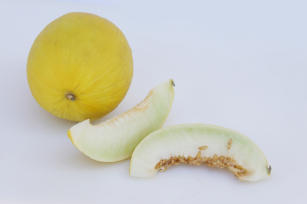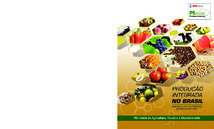Development of melon cultivars for domestic and foreign markets (Stage IV)
Development of melon cultivars for domestic and foreign markets (Stage IV)

Photo: CARVALHO, Henrique Martins Gianvecchio
In last the two decades, the melon agribusiness in Brazil has expanded nine times, reaching a production that is estimated at 500,000 tons per year and is concentrated in the Northeast. Since 2007, melons have become the main national fruit in volume of exports, and in 2008 Brazil was the second top world exporter. Nearly all melon cultivars planted in the Northeast are imported, and hence there is demand for more adapted ones, as the cultivars available were generally developed in soil and climate conditions that differ from the ones that prevail in Brazil, and thus they do not meet local farmers' real needs. Therefore, the project aims to continue with the development of melon cultivars (Yellow, Galia, Cantaloupe, and Santa Claus varieties) that are adapted to Brazilian conditions and are resistant to the crop's main pests and diseases. Potential impacts of the news to cultivars comprise: supply of national cultivar seeds that are better adapted to tropical conditions, favoring competitiveness of Brazilian melons in the foreign market; improvement in the quality of melons for domestic consumption; supply of high quality seeds with accessible prices, benefiting farmers with less capitals, especially those located in the São Francisco River Valley; reduction in the use of agrochemicals and environmental impacts, as a result of higher levels of resistance to powdery mildew and, eventually, other diseases.
Status: Completed Start date: Sun Apr 01 00:00:00 GMT-03:00 2012 Conclusion date: Thu Mar 31 00:00:00 GMT-03:00 2016
Head Unit: Embrapa Vegetables
Project leader: Valter Rodrigues Oliveira
Contact: valter.oliveira@embrapa.br

